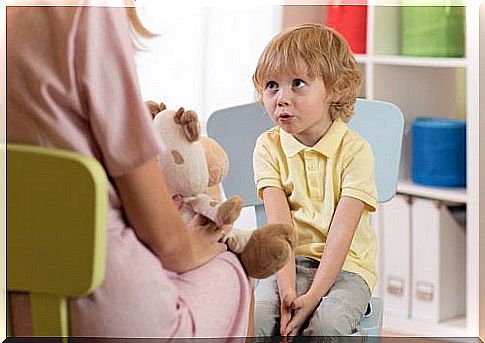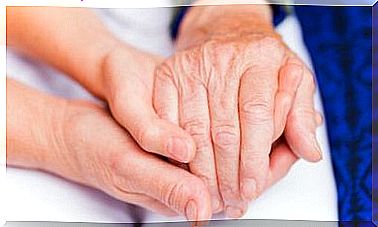Language Retardation: Types, Symptoms And Causes
Communication has given rise to great developments in humans. However, some people do not develop this ability properly. In this article, we’ll tell you more about possible language delays that arise during childhood.

From birth, babies communicate through crying or smiling. As they grow up, they learn gestures and sounds, and go so far as to say their first words. However, many children are delayed in speaking for different reasons and may have difficulty expressing themselves or even understanding.
Delay in communication can affect children’s interactions, character and learning. However, this condition is quite common. Between 5 and 10% of school-age children have problems communicating, according to the Department of Health at the University of Michigan (United States).
Language delay: a communication problem

Types and symptoms
There are two types of language delays: receptive delay, which is difficulty understanding what is being communicated, and expressive delay, which is difficulty communicating with words. Often the two go hand in hand.
Sometimes it takes a while to discover these communication difficulties, but some symptoms can attract the attention of parents, who will suspect a problem:
- If they don’t stammer yet after 15 months
- Or don’t say words at 2 years old
- It costs them to formulate sentences when they are around 3 years old
- They don’t understand the instructions
- And don’t react when we talk to them
Causes of language delay
The brain is usually the cause of language delay. However, it should be noted that this delay can also be caused by a physical disability, by problems of social adaptation or even by learning difficulties.
The main causes of this delay are as follows:
- Hearing loss: Children who cannot hear often have difficulty learning to speak.
- Not all autistic children have problems expressing themselves, but sometimes expressive problems are caused by autism.
- Neurological problems: Health problems like cerebral palsy or muscle atrophy can affect the muscles of speech
- Dysfunctional environments: Places in which children feel marginalized, assaulted or isolated can make language learning difficult. Sometimes in these cases the lack of communication is selective
- Apraxia of speech: this is a disorder where the muscles of speech do not respond to signals from the brain
Treatment
It can be difficult to know if the delay in speech is caused by one of these conditions or if it is simply due to a temporary situation. It is best to consult a pediatrician if you notice that the child is not following the normal cycles of communication. A timely diagnosis can help parents find a quick fix.
Depending on the cause of the delay, parents may be advised to take the child to an audiologist, speech language pathologist, psychologist or even a social worker. It is recommended to surround yourself with a multidisciplinary team with which to stimulate the child’s communication.
Family involvement is essential to the success of any therapy. Whether it is to stimulate language or to establish non-oral forms of communication, parents must be involved in the whole process.
Tips for parents

From birth, children learn from their environment. Their first reference is everything related to hearing. Even when they are in our belly, from the 18 th week, they begin to hear the first sounds. After the 25 th or 26 th week, they can meet the voice movements.
This is why we recommend that you talk to them from the moment of their birth, or even before. Other stimuli, as they grow, will help in the rapid development of their communication skills, such as:
- Respond to stammerings with words and sounds
- Sing to them as soon as they are babies
- Read books to them aloud. It is possible to start with special books for babies and progress as they grow older
- Always answer their questions
- Teach them the names of objects, even when they are babies and cannot speak yet
Finally, if you have detected a communication problem in your child, consult a specialist. As we have mentioned, early diagnosis will lead to the right therapy that will help you with your child’s language problems.









